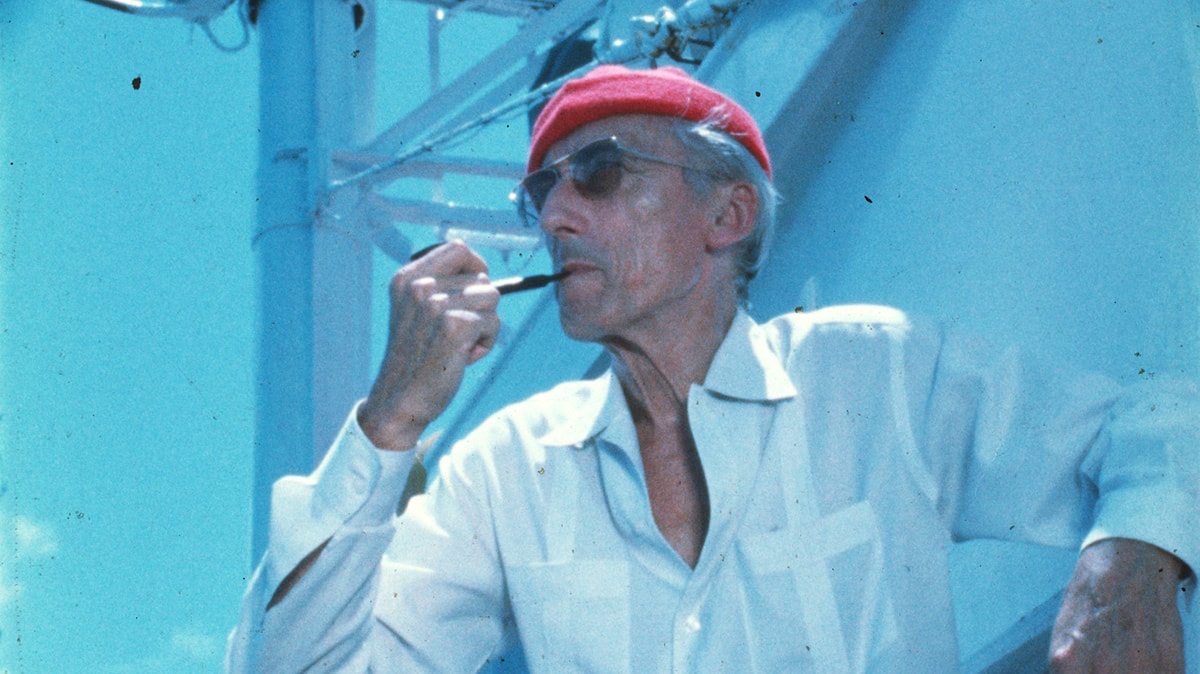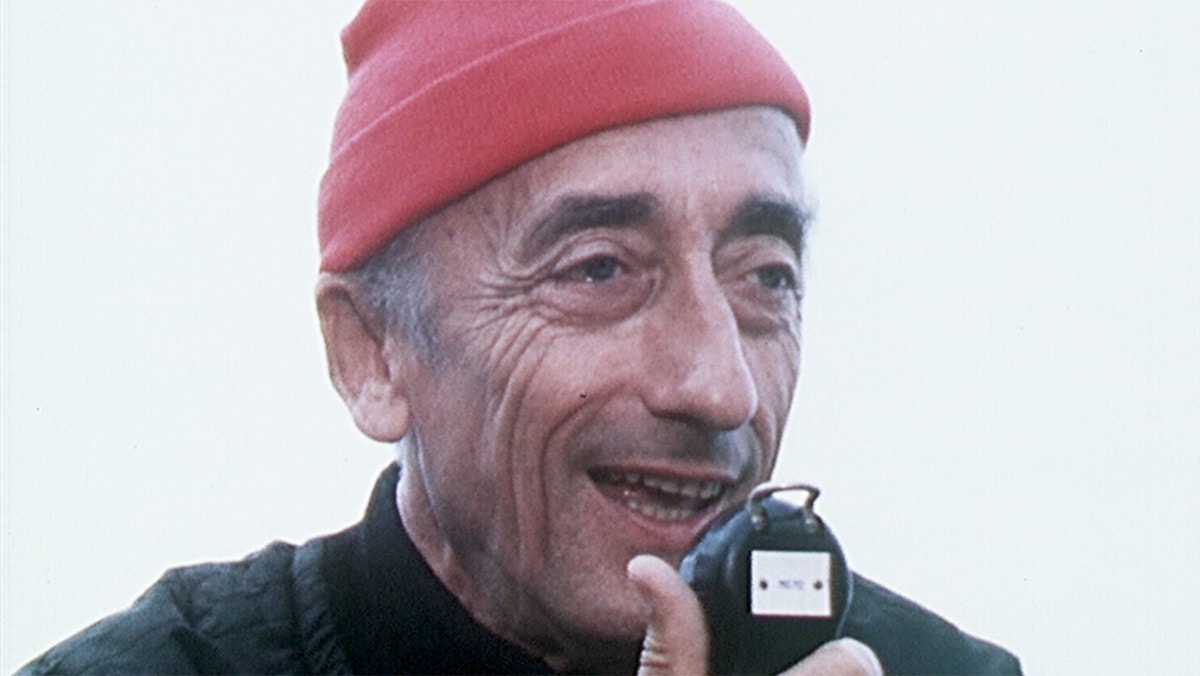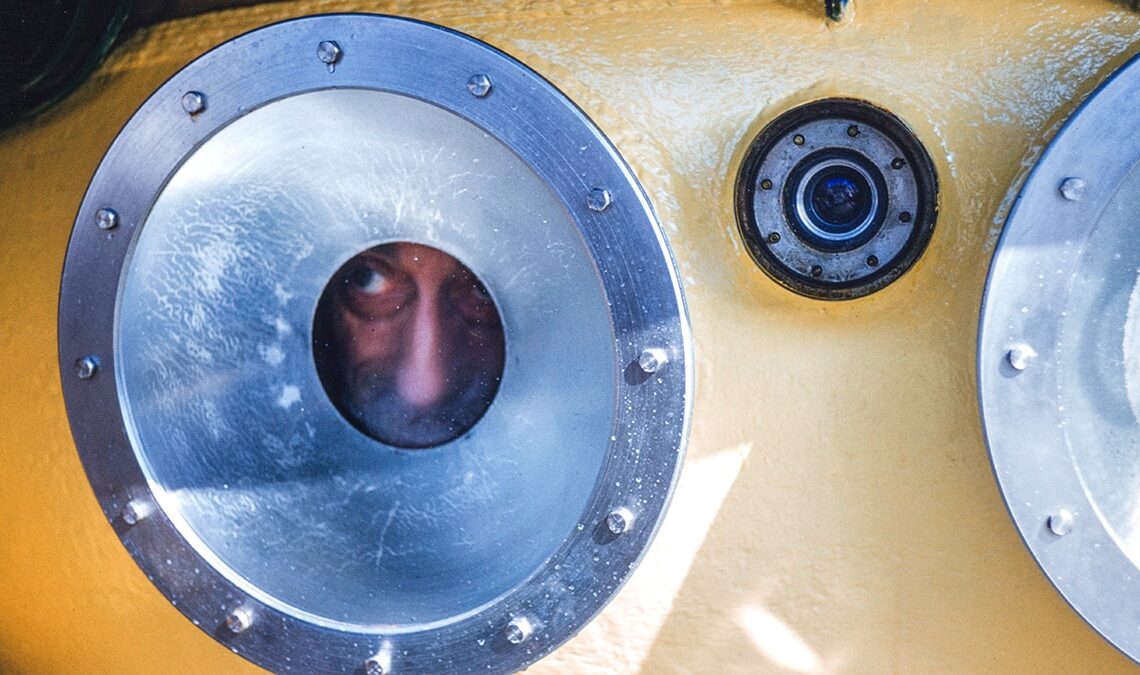Depicting the vivid and colourful life of explorer Jacques Cousteau, Becoming Cousteau dives headfirst into the deep, presenting the harsh effects of climate change across his 70-year career.
Becoming Cousteau is a loud call in the ocean, in which the hidden truths of human impact are presented vividly to its viewers. Through archival footage that shows an unshaken depiction of humanity’s impact on decaying sea life, this documentary film brings a slice of the sea to the masses, drawing on history to preserve the future of the oceanic environment.
Director Liz Garbus’s utilisation of archival footage is nothing short of poetic expression as the film takes creative liberty in presenting the impacts of climate change. Beginning chronologically with Cousteau’s childhood in the French Riviera, the film builds on Cousteau’s inquisitive nature and fascination with diving. With a voiceover narrating his private journals that recount his free dives feeling like “being introduced to heaven and then forced back to earth” upon resurfacing, the film manages to encapsulate his inspired passion for the ocean.
However, it can steer towards being whimsical with vivid editing that makes no attempt to enforce a sense of realism within the film. Kaleidoscopes of colour swim across frames as Garbus utilises double exposure techniques to superimpose a wild array of sea life animals on-screen. These brief moments of colourful chaos oppose the scenes of serenity created within the film’s underwater sequences, weakening the seriousness of the film’s contention by appearing somewhat childish.

From their invention of the Aqua-Lung to their free dives across the red sea, Garbus creates an almost mythical world, the archival visuals acting as the film’s strength. With poetry sewn into its seams, this film is bursting with prose and artistic expression. The visuals prove as a source for some of Wes Anderson’s earlier work, with footage showing Cousteau and his team aboard the calypso donning red beanies and blue uniforms, one can’t help but think of Anderson’s The Life Aquatic with Steve Zissou (2004); a rebellious take on the feat of oceanic explorers.
The documentary dives further into Cousteau’s connection to the broader film realm by including Cousteau’s pivotal films, showcasing behind the scenes footage that challenges the effortless ease that permeates through his acclaimed film The Silent World (1956). Alongside the coveted Louis Malle’s (Elevator to the Gallows, 1958) appearance as an intern, the documentary gives an unexpected but welcoming exploration into Cousteau’s life and perspective as a filmmaker who “doesn’t make documentaries, but real-life action films”.
Becoming Cousteau seems to build a steady sense of positivity which crashes like a wave within the film’s final sequence. The sobering reality that Cousteau’s “life as a mere explorer is over” reverberates throughout the remainder of the film as he grapples with his son’s death and the existential threat of climate change on the treasured environments he has dedicated his life to exploring. The shift in tone creates an interesting dynamic that almost appears to split the film in two.

The pessimism thrust upon the final third of the narrative provides a new emotional depth that seems out of character to the effervescent Cousteau depicted earlier. Cousteau’s expression of anger towards climate change as “throwing blank checks on future generations which they will have to pay” is a particularly harrowing sentiment given the current context of climate change globally. The cumbersome feeling of watching footage of climate riots in the ’70s, given the current lack of change, is particularly concerning but ultimately illustrates that individuals have continuously attempted to protect the sacred environments subjected to pollution.
The film itself is aware of its own irony. Cousteau acknowledges his impact on climate change, repeatedly cutting back to footage of his team killing wild animals and blowing up lakes to uncover what lurked beneath the water’s surface. This important inclusion of Cousteau’s changing mentality and actions is a welcomed acknowledgement, affirming a sense of authenticity within Cousteau and the film.
Becoming Cousteau demonstrates the revolutionary contributions an individual can have in the wider current of oceanic discovery. Cousteau as an explorer, provided the groundwork for future exploration in which this film made sure to pay its respects. While the film’s tonal shift can sometimes seem jarring, it embodies a sense of infectious curiosity from Cousteau that long outlives the 96-minute runtime of the film.
Fun Fact:
Jacques Cousteau is the winner of three Academy Awards (1957, 1960, and 1965).




COMMENTS